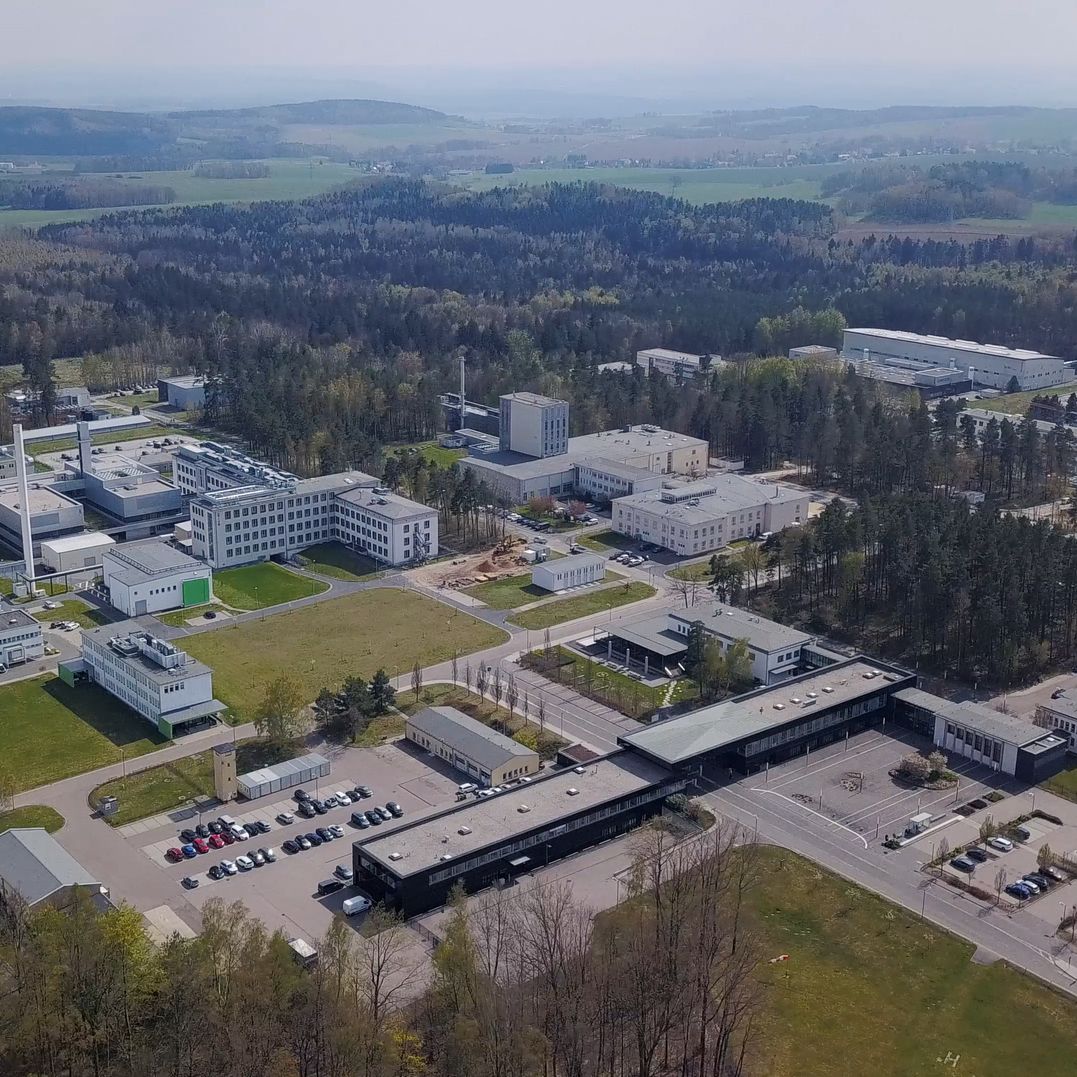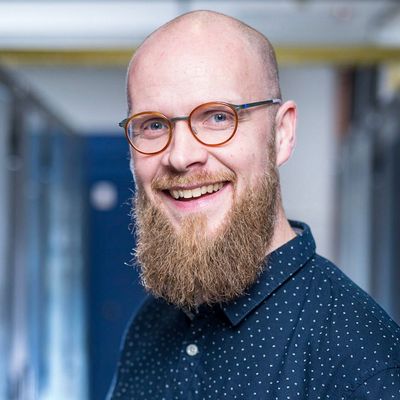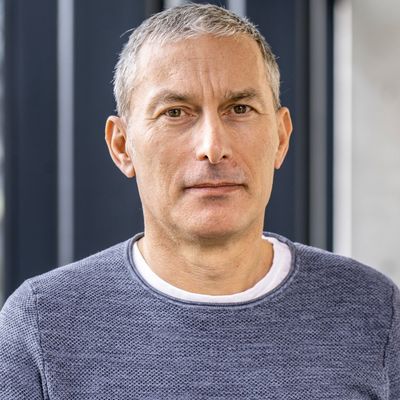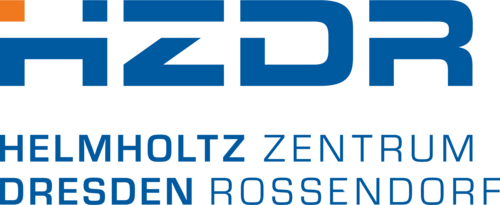Creating knowledge, shaping the future: At HZDR, scientists work on groundbreaking solutions in energy, health, and matter – from precise cancer therapies to the development of sustainable energy resources.
Through HIDA’s mobility programs, data science talents have the opportunity to contribute to interdisciplinary fundamental research at HZDR – with the goal of turning complex data into new insights for medicine, energy, and materials research.

The programs
Get to know the HZDR with HIDA
The Helmholtz Zentrum Dresden-Rossendorf is part of the Helmholtz Association.
Data science talents can conduct research at the Center through the following programs.
The Helmholtz-Zentrum Dresden-Rossendorf (HZDR) is dedicated to application-oriented fundamental research in the fields of energy, health, and matter. HZDR’s mission is to translate insights from basic research into practical applications – from innovative cancer treatments to the development of new materials for energy technologies.
Research priorities:
- Energy: Sustainable resources, fusion research, hydrogen technologies
- Health: Radiopharmaceutical research, cancer therapy using particle beams
- Matter: Plasma physics, high-intensity radiation, materials research

The sites
The sites
Main site: Dresden-Rossendorf
Research Infrastructure and Collaborations:
- Helmholtz Institute Freiberg for Resource Technology
- Dresden High Magnetic Field Laboratory (HLD)
- ELBE – Center for High-Power Radiation Sources
- Casus – Görlitz
HZDR expertise in the field of Data Science and AI
HZDR leverages cutting-edge AI technologies and big data analytics to explore highly complex physical and medical processes. Interdisciplinary teams develop data-driven models to enhance scientific simulations, diagnostic methods, and material design.
- AI-powered analysis of medical imaging for personalized cancer therapies
- Machine learning to optimize material simulations and high-energy processes
- Automated pattern recognition in particle accelerator and plasma experiments
- Development of simulation models for sustainable energy technologies
- Multimodal data integration to improve scientific predictions
With around 1,500 employees, HZDR bridges fundamental research and practical application to drive innovation and strengthen science and industry across Saxony, Germany, and Europe
Notes on application
Hinweise zur Bewerbung
Meet some potential hosts at various Helmholtz centers and learn more about their respective data science-based research by clicking on the cards.
Please note: Please contact your potential supervisor in advance by email to suggest and discuss a research project. Only submit your application after this clarification.
If you have any questions, please email: hida@helmholtz.de
Would you like to become a Helmholtz host yourself and are looking for support for your research project? Then please also contact the above email address.
Apply now!
The Hosts at HZDR
Get to know some of the hosts at HZDR and learn more about their respective research based on data science.
Before you contact the potential hosts, please read the application instructions.
Please note: The listed hosts represent only a selection of possible supervisors.
You are also welcome to independently contact other potential hosts at the center and coordinate your participation in the HIDA Mobility Program directly with them.

Michael Bussmann
Sustainable Systems Science
Contacts

Short summary of your group's research: The Center for Advanced Systems Understanding is a new center working in the field of data-driven systems science. We strive to understand complex systems in an interdisciplinary way using newest digital technologies. From modelling the formation of complete organisms from a single cell to studying the interplay between ecosystems and biodiversity, from understanding what exoplanets look like to working on the mobility of the future, CASUS provides a diverse and welcoming research culture.
What infrastructure, programs and tools are used in your group? We provide access to a large HPC systems for both high performance compute simulations and large-scale AI. We have expertise in high performance computing, scalable AI, human-machine interaction, and strive for the development of professional research software and solutions. We have access to some of the largest compute resources on the planet.
What could a participant of the HIDA Trainee Network learn in your group? How could he or she support you in your group? Trainees have a large variety of options, from learning High Performance Computing (including GPU and FPGA computing) to newest developments in AI (physics-informed NN, Invertible NNs, Normalizing Flows, ...), from applied mathematics and data science foundations to using their skills for a variety of applications in physics, ecology, digital health, autonomous systems, cyber security, earth systems science and more.

Peter Steinbach
Artificial Intelligence
Contacts

Three-sentence summary of your group's research: We are Helmholtz.AI consultants and work on a wide range of projects. Our core strengths presently are digital twins using machine learning (simulation based inference, surrogate modelling), pattern recognition and object detection in images and other modalities, anomaly detection, uncertainty quantification and prediction robustness. As a plus, we have a strong background in teaching.
What infrastructure, programs and tools are used in your group? We use HPC infrastructure locally and available across Germany. We so far, have concentrated on the use of libraries like pytorch, scikit-learn, scikit-image to which we occasionally contribute.
What could a guest researcher learn in your group? How could he or she support you in your group? In our team, a scientist could learn about how to make a machine learning model more trustworthy (with respect to stability, fairness, uncertainty, robustness and explainability). We can offer guidance on each of the topics we specialize in: digital twins, surrogate modelling, object recognition, anomaly detection, prediction robustness. We can also help to set up a reprucible and scalable machine learning workflow. If you like to learn more, please let me know.
We always welcome support in converting our learnings into open-source tools that the community at large can reuse subsequently.

Richard Gloaguen
Exploration and characterization
Contacts

Short summary of your group's research: We are developing imaging technologies for the characterization of complex material streams and the Earth's surface. Our approach is based on sensor integration and processing using machine learning. Our platforms include drones, robots and conveyor systems.
What infrastructure, programs and tools are used in your group? We have our own imaging sensors, a GPU HPC and develop our own python tools.
What could a participant of the HIDA Trainee Network learn in your group? How could he or she support you in your group? A guest researcher would learn to work with cutting edge technology and process data with the latest developments in computer vision and machine learning.



